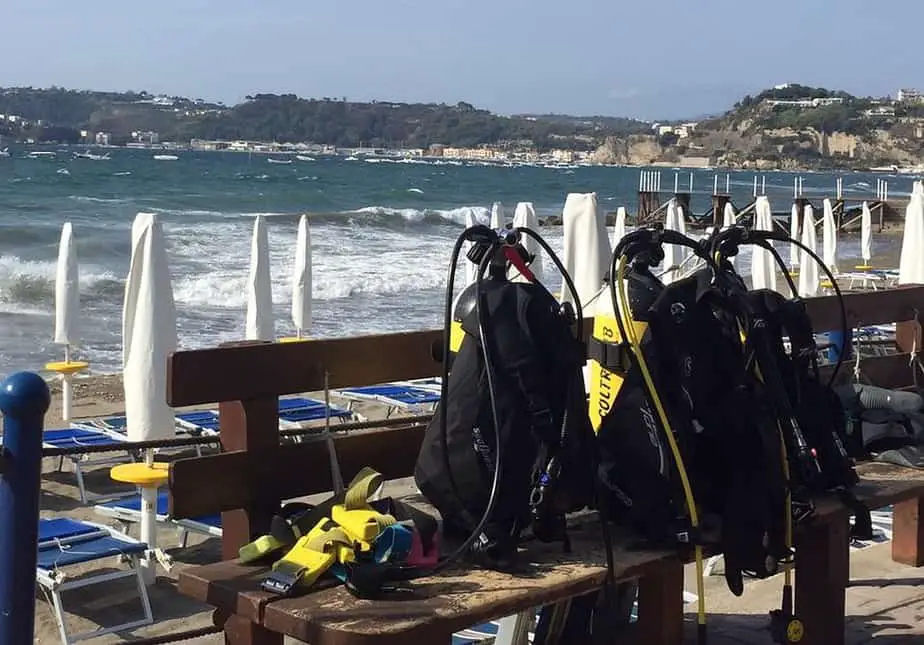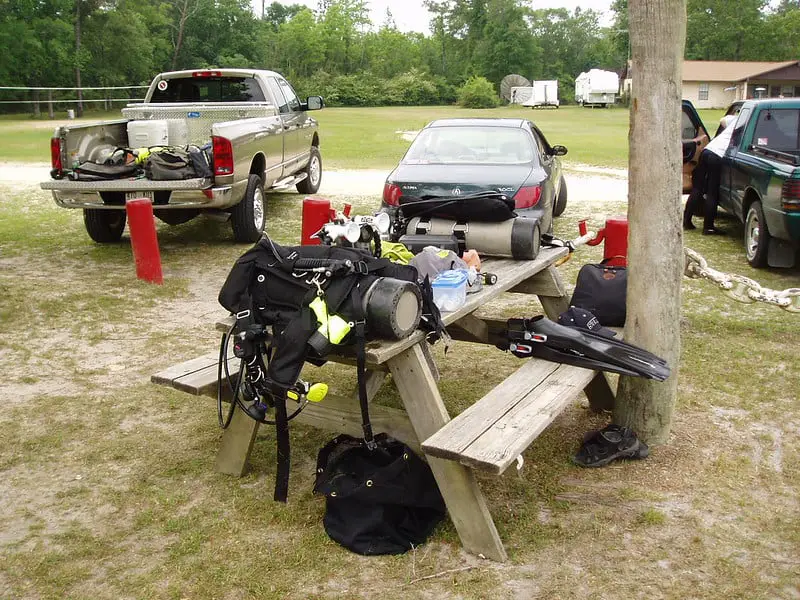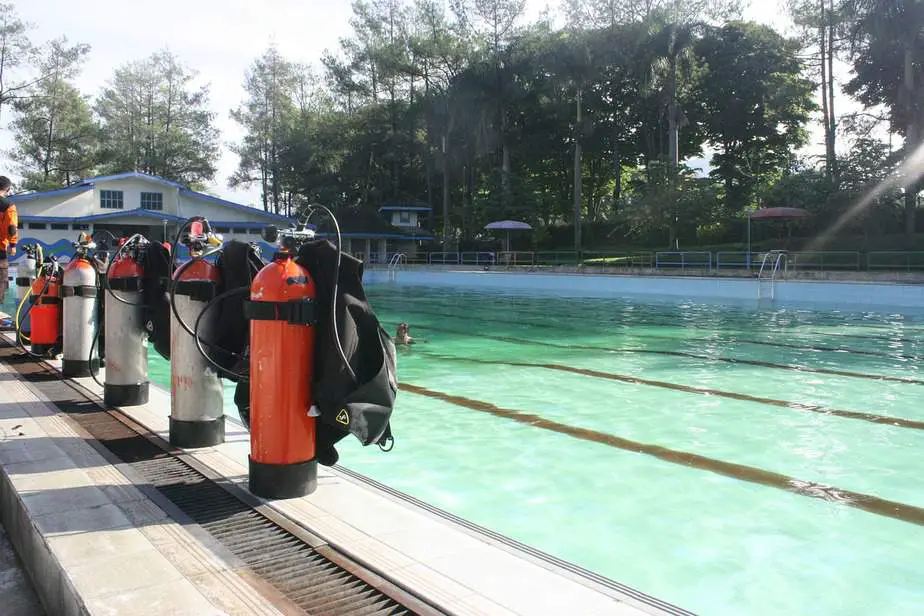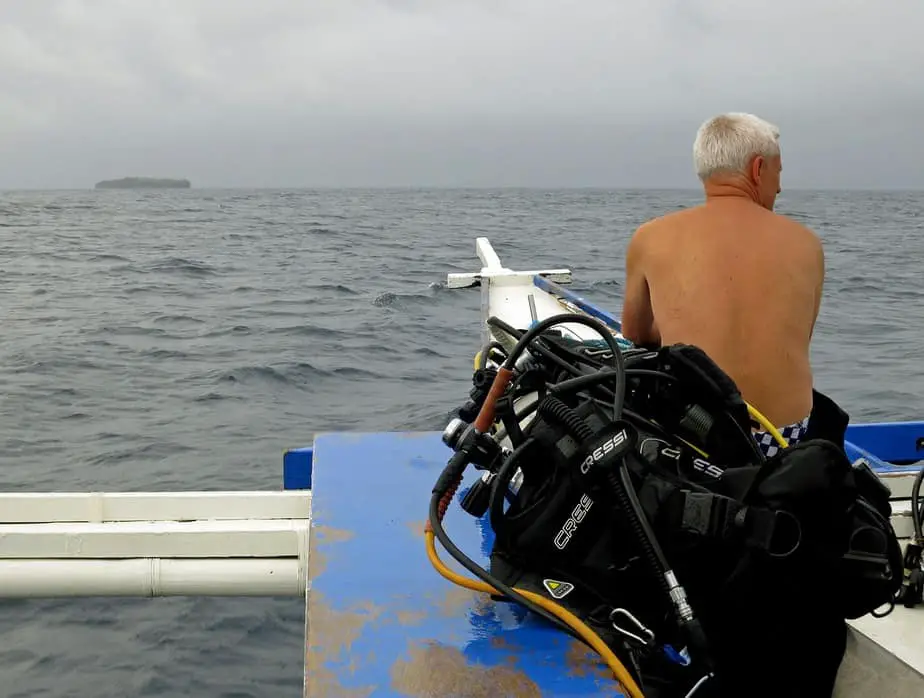Is my scuba gear too old? That is a question that is often asked by divers who have either stopped diving for a long time and didn’t get rid of their gear, or those who have purchased such reliable gear that, 5 or 10 years down the line, they are still using it. Maybe you’re thinking about getting rid of it, replacing it, or you’re thinking about reusing it after a long hiatus. Unfortunately, what you should do with your gear is not always a straightforward answer.
If you want to get rid of your old scuba gear, your best options are to either sell them or donate them. Even something like a faulty scuba tank can be sold for its metal scrap value. If your gear is still functional, you can try listing it on Craigslist, eBay, or Facebook Marketplace. Make sure to take good pictures to present them in the best possible light (literally and figuratively).
Otherwise, you can donate old dive gear to family, friends, or to a Goodwill or other thrift store. If you plan on reusing them, then ensure they are still functional by getting them serviced, particularly the regulator, scuba tank, and dive computer. Chances are, you will have to replace most of your gear, but something like a steel scuba tank can still be functional even decades later.
Since the option you are most likely interested in is selling your used scuba gear to recoup some of the costs, the majority of our article will be focused on ways you can sell your scuba gear. Donating them or getting them serviced is pretty straightforward, though you might want to just buy new gear and not waste any money on servicing old ones. If you have a faulty scuba tank, you can possibly re-purpose it so that it becomes furniture or decoration in your home.
Sell your used scuba gear

If you have a bunch of old scuba gear you don’t want anymore, the first thought that comes to most people’s heads is: sell them all. There is a thriving second hand market for scuba gear, and you might as well recoup some of the costs on the gear so that you don’t feel like you wasted your money.
Selling your gear after you’re done with them is basically the equivalent of getting a substantial discount on all new items because at some point you can get back a portion of its value, assuming you took good care of it. The better condition the gear is, the higher the listing price you can set (and actually sell at).
The usual places to sell your gear are Craigslist, eBay, and Facebook Marketplace. Surely you’ve heard of them, as they have become so popular they are part of many Americans’ daily vernacular. You might also be able to sell in more localized groups like specific Facebook groups in your area or in some scuba diving forum.
When listing your item on your preferred marketplace, you have to put in some effort. Don’t just upload a crappy cell phone pic and leave the fields blank other than the price. Actually take a nice photo – if possible, ask a photographer friend to bring their nice DSLR camera, or even rent a good camera so you can take detailed macro shots of the item(s) you are selling.
The pictures are what sell the item. The nicer your photos, the greater likelihood someone will want to buy and pay whatever price you list it at. The photos are visual confirmation to the buyer that the item(s) are indeed what they want, that they are in good condition, and that you didn’t just take a stock photo from Amazon which would make anyone suspicious. You can even record a video if you aren’t afraid of talking in front of a camera and feel that you are a decent salesperson.
Take pictures of the item(s) from every conceivable angle. If the item can be opened up, then open it up. Dismantle each component, take pictures of it from multiple angles, and hide nothing. I’m assuming the item is in good condition; if not, be honest about any blemishes and explain why it’s not a dealbreaker. Your boldness in leaving nothing to the imagination will instill trust in the buyer and increase your chances of a sale.
Even though the picture/video will do most of the talking, also write a concise description that sells the product. Let potential buyers know how little it has been used, how it still functions like new, how you might even throw a discount their way if they buy more than one item from you. Again, address any flaws; don’t pretend like they aren’t there because this makes the buyer distrust you.
Expect (and be willing) to negotiate with potential buyers. If you don’t want the buyer to haggle you down too much, then list the item slightly higher than what you actually want it to sell at, and let them negotiate to the price that you intended to sell it at all along. Don’t be too stingy though; you want to get rid of the old dive gear after all, so think of any money you get as a bonus.
Next, we alluded to this, but you can choose to sell your scuba gear individually (multiple listings) or sell the entire kit in one listing. There are pros and cons to both. Doing multiple listings obviously requires more work, but you can potentially get more money depending on how the negotiations go. You might be able to do some upselling and tell them about your other items.
People tend to be more comfortable buying smaller ticket items (and carrying less cash around) than buying an entire kit from a second-hand seller; it’s easier to test the equipment one at a time and transport it this way too. The downside is that you will have to make multiple trips to meet with people to exchange the item for cash and deal with each person’s haggling.
Donate your old scuba equipment

If you are feeling charitable, you can just donate your gear. There are many options available for recycling your scuba gear. Rather than go through the hassle of fixing your old gear, comparing prices, and listing it for sale, you can just dump all of your gear at a thrift store and be done with it.
The easiest option if you live in the US is to donate it to a local Goodwill, Salvation Army, or other thrift store. The gear still has to be functional – don’t give them broken gear. Sometimes they might even have a service where they’ll come to your doorstep and take it away. The benefit of doing this, other than the good karma you’re sure to get, is a percentage back on your taxes if you itemize and claim the deduction on your taxes.
Also, you can feel good about yourself. Someone who never had the means to afford pristine scuba gear can get yours at a bargain price. They’ll surely appreciate your generosity, you can feel good about yourself, and practically, you’ll be happy that you can keep some money away from the tax-man.
An alternative way to getting rid of your old gear in one fell swoop is to sell it to a business. Some dive shops will buy your gear or they may point you to a business that will buy your gear. They will offer you a pitiful amount; they will end up selling it themselves at a markup for profit. However, if you’re unwilling to handle the selling yourself and want to quickly get rid of your gear, this may be a viable option.
Just keep your old dive gear around

Are you aware that your Open Water Diver certification never expires? That means that you can take a long hiatus and technically still be eligible to return and dive. However, even though your certification doesn’t expire, your skills can certainly be forgotten or lost. It’s best to take a refresher course to regain your old knowledge and skills.
By keeping your old gear around, you keep your options open. Maybe you just temporarily lost your passion for diving and want to take some time off. Maybe you met some new friends who are avid divers, and you remember that in your past life you used to be a diver as well. Perhaps it comes up naturally in conversation between family or friends, and now they want you to introduce them to diving.
Whatever the case, due to how long-lasting a lot of scuba gear is, they can still be useful years later, so don’t be too quick to get rid of them if you feel like you might make a triumphant return years later.
At the very least, you can turn your old scuba cylinder into a grill – now that sounds cool.
How old is too old?
Are you unsure if your old gear is still usable, or if it should just be tossed into the garbage? This section can give you an idea as to what to do.
Disclaimer: This is not intended to be a comprehensive guide. We can’t actually see what condition your gear is in. Also, it’s impossible to truly know their condition until you test the gear or get them serviced. Use your common sense, ask other divers for their opinion, read other people’s experience with how long specific gear lasts, and make an informed decision yourself.
Dive gear can last a long time if you take good care of them by properly cleaning, drying, and storing them after each use. Combine your efforts with the manufacturer’s efforts to create more durable and reliable high quality equipment, and you can easily use the same gear for 2, 5, 8, even 10 years, depending on which piece it is.
However, when gear lasts that long, scuba divers start to encounter some first world problems. Arguably long before the gear has reached its natural lifespan, many divers will want to start replacing their “old” gear after only 1 or 2 years of use. They may start to feel envious of their buddies upgrading their equipment year after year. FOMO (fear of missing out) will get the best of many divers. Or they may feel nervous because they are afraid of the day when their regulator or dive computer will die on them in the middle of a dive.

It’s hard to give an exact estimate of how long scuba gear can last for. As long as you’re taking care of it and getting it serviced on time, and it still works year after year, technically you don’t have to replace it until it becomes so obsolete that it can’t compare to the newest offerings. Don’t fix what ain’t broke and all that.
Something like a steel scuba cylinder will basically last for a lifetime. The lifespan of both aluminum and steel tanks are in the decades, with steel tanks lasting upwards of 50 years.
Any gear made of neoprene rubber such as your wetsuit, fins, dive gloves and dive hood should probably be replaced after a few years because they can get worn down over time. When you first wear them, they will feel stiff until you break them in, however after too many years, they may become too thin and lose some of their insulating capabilities.
You must also consider how your body shape has changed over the years. If you haven’t gone scuba diving in a couple of years and you put on some weight in the meantime, then your wetsuit might not be able to fit you anymore.
Next, regulators, like scuba tanks, can last a long time if you buy a high quality one. You can get it serviced and it will probably still be functional. Whether you’re planning on using it yourself or selling it, you have to factor in the cost of servicing it versus how much servicing it cuts into your profits if you plan on selling it, or if that money can just go towards a brand new regulator.
For your reg hoses, give them a visual inspection – if you see cracks, slices, or nicks on the outer rubber, you need to replace them. If they seem fine, give them a test to see if they leak. You might be able to salvage them.
As for your SPG – it’s probably fine, but check if any O-rings need to be replaced.
Dive torches – replace the light bulb, batteries, and any O-rings.
Any mask or fin straps – don’t think too hard and just replace them.
For your BCD, try inflating it and see if it holds air over night. Even if it can’t, it can probably be serviced and salvaged.
Dive computers may still be functional, but do you really want to use an old one? There are always innovations in dive computer technology – manufacturers are always tweaking their algorithm and adding new sensors to create an even more accurate dive profile. Check the resale value of the dive computer model you have, and determine if it’s worth spending money to service it and sell it, or to just buy a new one entirely.


